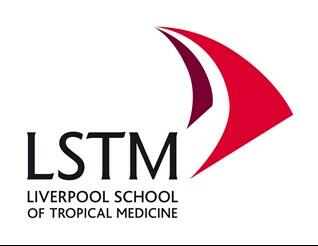
LSTM is an international centre of excellence in research, teaching and technical assistance. Its overall aim is to promote improved health, particularly for people of low income and less developed countries. A registered charity in the UK, LSTM is contracted by and receives funding from a wide variety of national and international governmental and non-governmental organisations such as DFID, Medical Research Council, Wellcome Trust, European Union, USAID, NIH, Bill & Melinda Gates Foundation, and the vast majority of its research and technical contract income of £41.2M (2010-11) and £43.8M (2011- 12) has been awarded on a competitive, peer reviewed basis.
LSTM manages a portfolio of 248 active grants worth over £190 million in total. The school has a strong technical expertise in, and academic linkages to NTDs, malaria, HIV, tuberculosis (TB), implementation research, applied social science and health systems research, gender and equity analysis, monitoring and evaluation (M&E), human resources for health (HRH), laboratory systems, reproductive health (RH) and maternal and newborn health (MNH). In 2013, in recognition of LSTM’s academic status as a centre of excellence, The Secretary of State for Business, Innovation and Skills designated LSTM as an independent higher education institution (HEI).
LSTM is a leader in NTD research and global disease elimination/control programme management. Our contribution to COUNTDOWN's research spans expertise in NTD research in NTD global research uptake (Molyneux) parasitology (Stothard, Taylor, Molyneux, Bockarie, Turner), vector biology (Reimer, Bockarie), NTD operational research and implementation support systems (Bockarie, Molyneux, Theobald), evidence synthesis (Garner), capacity strengthening and research uptake (Bates),
drug and diagnostic discovery and development and implementation (Taylor, Stothard, Adams), mathematical modelling (Hollingsworth), health economics (Niessen) and applied social science
(Theobald, MacPherson). We boast a wealth of NTD disease expertise in: onchocerciasis and lymphatic filariasis (Taylor, Molyneux, Bockarie, Turner, Reimer); schistosomiasis and soil-transmitted helminths (Stothard).
COUNTDOWN's research builds on existing longterm collaboration with in-country partners in Ghana (Ben Marfo, Mike Osei, Margaret Gyapong) and Cameroon (Samuel Wanji) conducting field-based studies on onchocerciasis and lymphatic filariasis and vector biology. Support through LSTM’s CNTD, for implementation of MDA against NTDs in Ghana, started in 2000 with the initiation of the Global Programme to Eliminate LF (GAELF). Over the past 13 years we have worked with the national programme through integrated control, scaling-up and scaling-down. Other activities include laboratory capacity strengthening to support scale-up to 100% treatment coverage in Ghana for LF. In Ghana, the Lymphatic Filariasis Support Centre (LFSC) with the support of CNTD, has provided technical support to the national programme of Liberia during the period under review as well as a other West African countries. The first workshop to develop transmission assessment survey (TAS) tools was organized by the LFSC in Ghana.
LSTM working in collaboration with APOC and the WHO country office in Liberia established the National Programme for NTD control in Liberia as an integrated control programme in 2009. We have since worked with the national programme through coordinated mapping of multiple diseases, MDA, monitoring and evaluation and capacity development.
LSTM is also a partner in the DFID-funded Integrated Control of Schistosomiasis and Intestinal Helminths in sub-Saharan Africa (ICOSA) project. This five-year project aims to deliver 75 million treatments for schistosomiasis and intestinal helminths in 8 countries in sub-Saharan Africa. LSTM, through its Centre for Neglected Tropical Diseases (CNTD) will provide technical support for disease mapping, national planning, mass drug administration and M&E in all focus countries. In 2010, LSTM/LATH was a part of the consortium selected by the USAID as the recipient of the Control of Neglected Tropical Diseases (NTD) Cooperative Agreement for Africa. The five-year agreement is designed to contribute to USAID’s goal of reducing the global prevalence of seven NTDs through grants to support rapid expansion of integrated, country-led NTD control programmes based on MDA.
